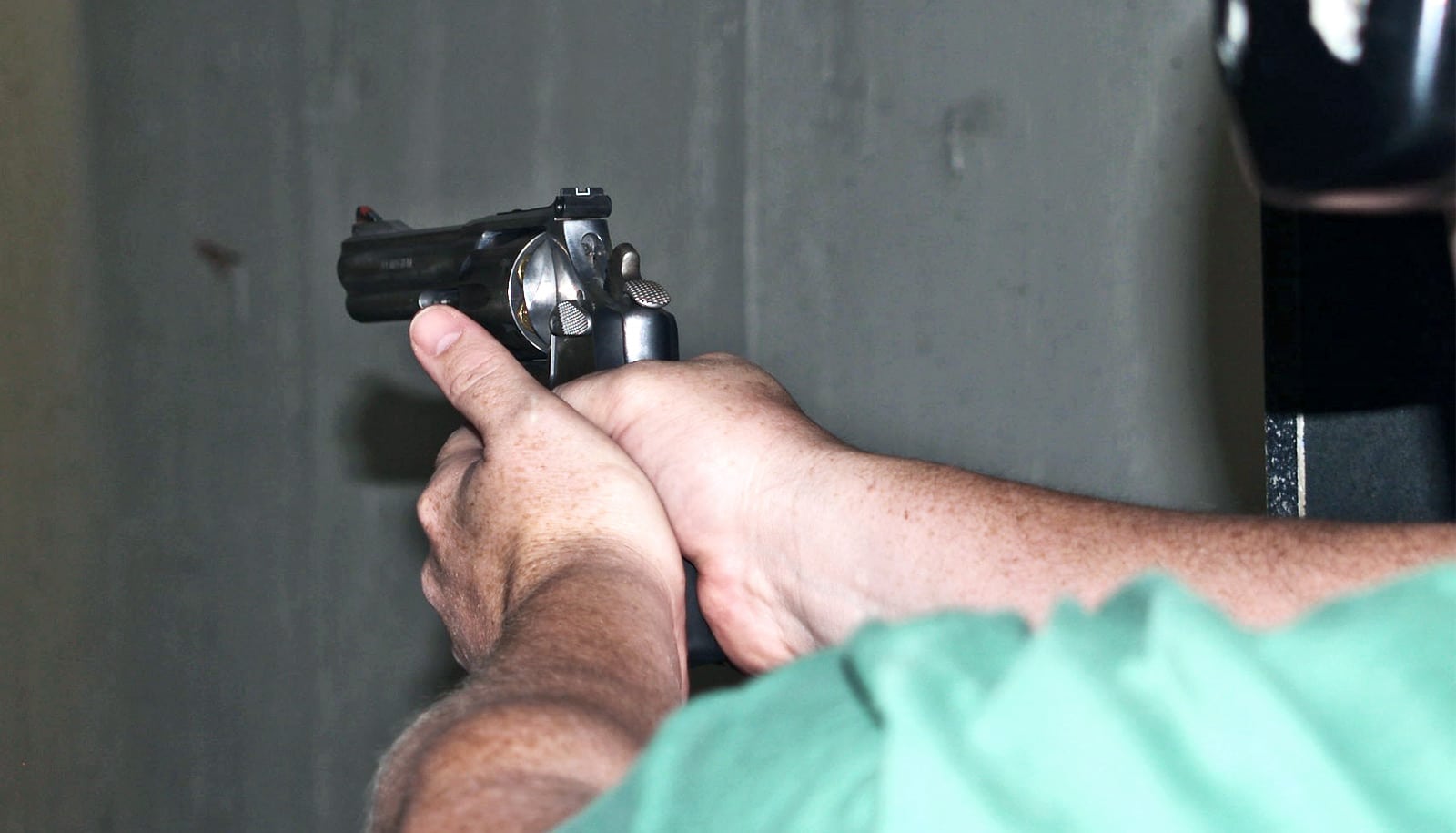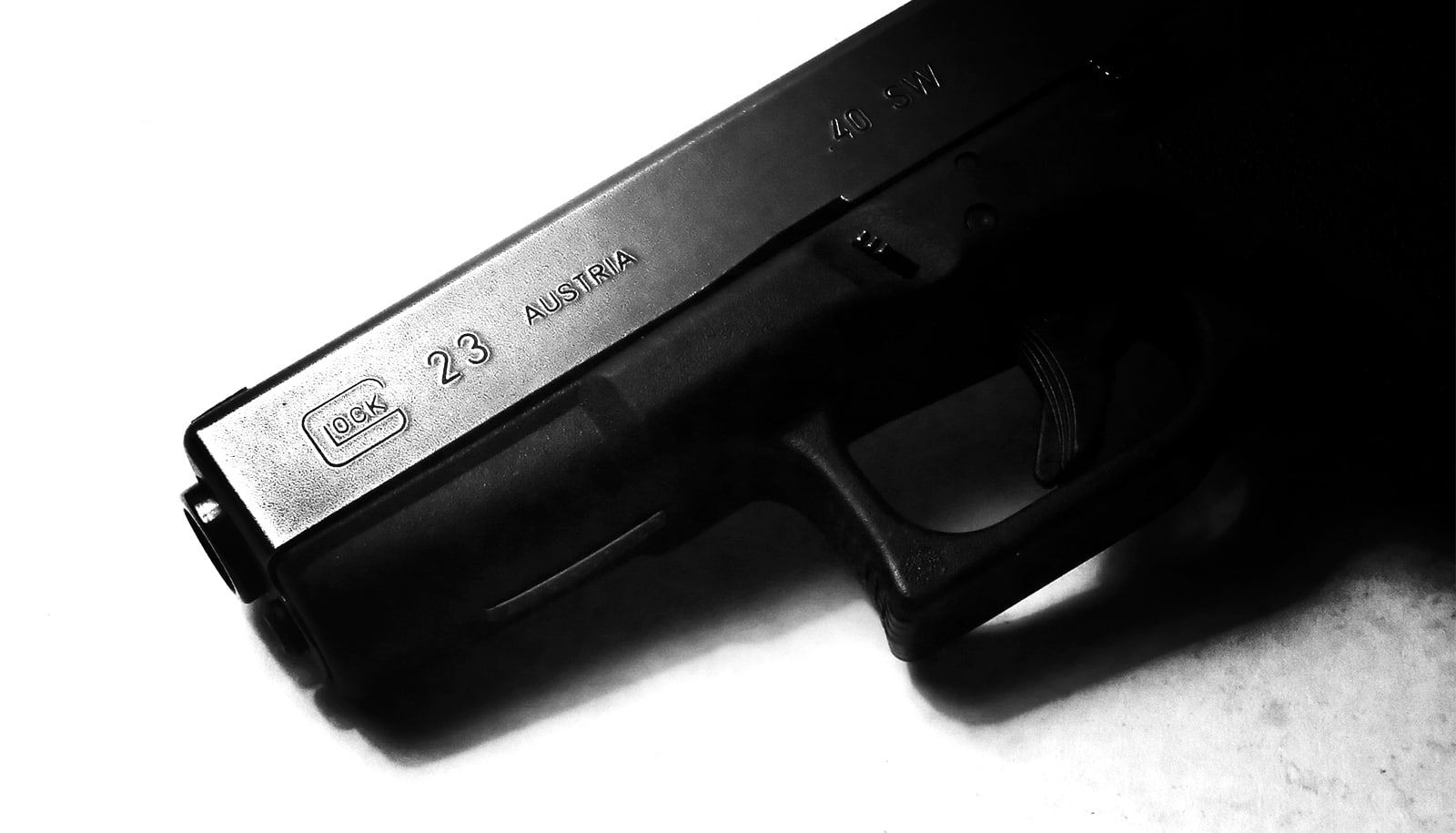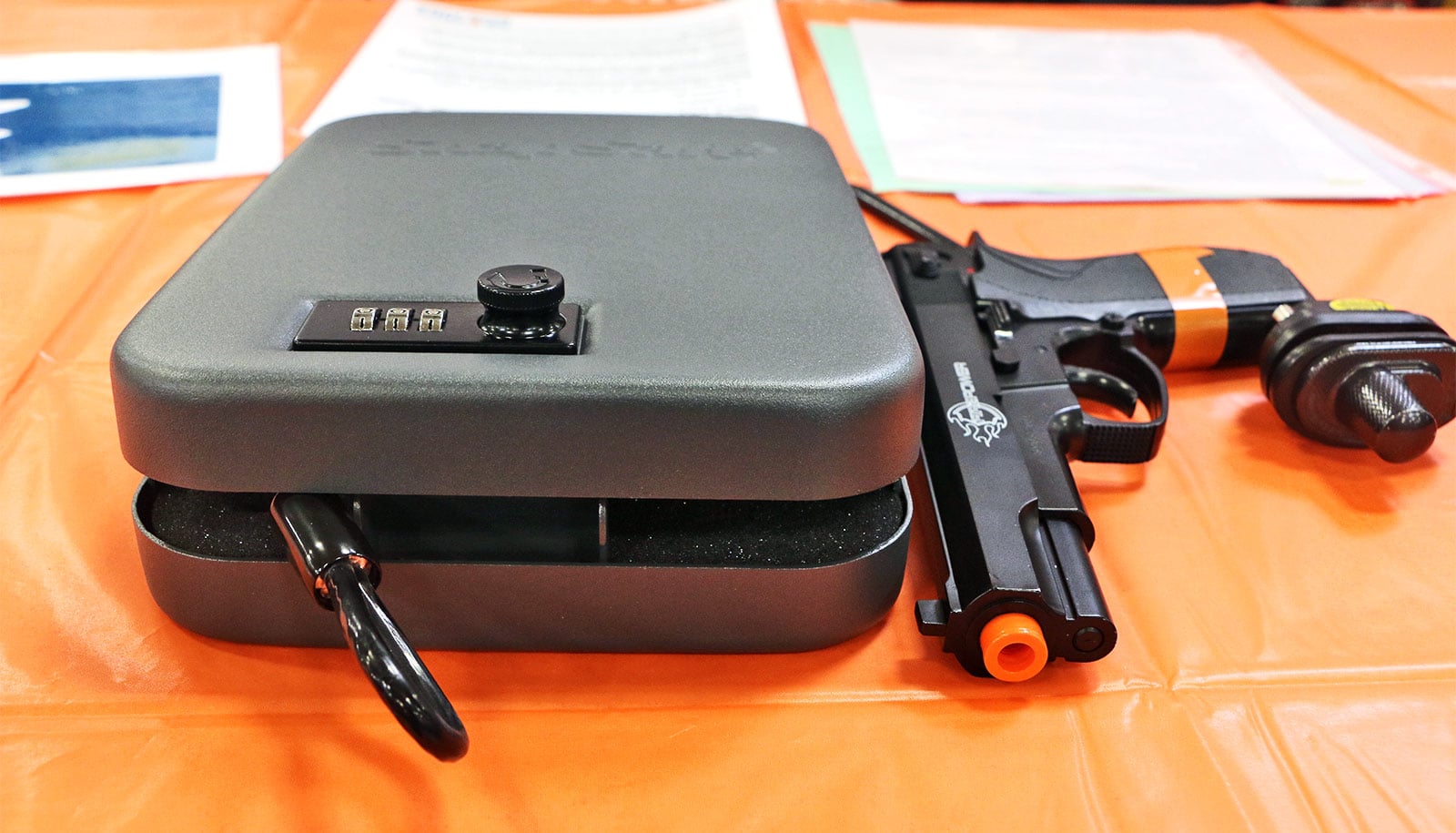Military personnel who are at a greater risk of suicide are more likely to unsafely store firearms in unlocked cabinets where they can access them easily, according to new research.
Firearms account for approximately half of all suicide deaths in the United States and approximately two-thirds of all suicide deaths in the military.
The National Suicide Prevention Lifeline’s phone number is 1-800-273-8255.
“Ready access to firearms is a robust risk factor for death by suicide, with data demonstrating that suicide is up to five times as likely in homes with a firearm present,” says lead author Michael Anestis, executive director of the New Jersey Gun Violence Research Center, and an associate professor in the urban-global public health department at the Rutgers School of Public Health.
The study in the journal Psychiatry Research stresses the importance of interventions to assure safe firearm storage as a suicide prevention strategy.
Researchers examined firearm ownership and storage and suicide risk factors such as depression and lifetime and current suicidal ideation in 953 service members, about 80% of whom were in the National Guard.
They found that 18% of the service members who owned a personal firearm stored them unsafely—loaded and in an accessible, non-secure location like a bedside table rather than a gun safe—with 9% exhibiting current suicidal ideation. The study, however, found no association between lifetime suicidal ideation and a greater likelihood to own firearms.
“The fact that firearm-owning service members who are experiencing or have experienced severe distress appear to be more prone to unsafe storage practices is particularly dangerous since they are often hesitant to seek mental health care or to disclose or change their firearm storage practices,” says Anestis.
Effective interventions include providing education on firearm suicide risk and safe storage strategies including storing the ammunition separately, removing firing pins, and allowing someone else to keep a key or code to a gun locking device and removing firearms from the home during times of suicidal crisis.
“We cannot simply wait to know a service member is at high risk for suicide before we encourage safe storage or temporary storage away from home,” Anestis says. “We may not know they are at risk until it is too late, so we need to promote these practices to everyone. If it becomes more difficult for a suicidal person to access a firearm, it is far less likely they will die.”
The National Suicide Prevention Lifeline’s phone number is 1-800-273-8255.
Source: Rutgers University



